by Shana Marshall from the Middle East Research and Information Project
In May 2018, Matthew (Matt) Hedges, a PhD student at Durham University in Great Britain, was arrested by United Arab Emirates’ (UAE) authorities while conducting dissertation fieldwork and detained for seven months in solitary confinement where he was interrogated daily and denied access to counsel. Matt’s mother—who lived in the UAE—witnessed her son taken into custody by state security after dropping him off at the airport for his return flight to Durham. Although Matt was arrested on May 5 the first news stories did not appear until October, when his family went public following months of failed diplomatic talks. The Emirati courts found Matt guilty of spying on behalf of the British government but granted him a pardon two weeks later and put him on a flight back home. They continue to insist Matt was an MI6 agent, pointing to video footage of him confessing to efforts to discover UAE military secrets, including details of the country’s weapons purchases.
At the time of his arrest Matt and I were working on a project investigating the role of financial institutions in facilitating weapons production projects in the Gulf States. In my last email message from him, dated April 26th, he said he had set up two meetings with personnel in the UAE offices of a prominent US defense contractor for the following week, including the person in charge of the industrial participation agreements that channel technology and production expertise from Lockheed’s US operations to domestic firms in the UAE. He was arrested nine days later.
One might think that finding significant and extensive documentation on any given country’s weapons systems or military capabilities requires a chain of informants or unusual sleuthing skills—capacities that might characterize both a good researcher or a spy. The truth is that the vast majority of this information is open access and available to anyone with an internet connection.
Paper Trails of the Global Arms Industry
The global arms industry, as it turns out, operates much like any other industry—employing huge numbers of white-collar professionals in the areas of consulting and business intelligence, public relations, lobbying, organizing trade fairs and industry conferences, and as reporters and publishers of industry-specific magazines, newsletters and databases. All of these activities generate significant paper trails. There are literally hundreds of commercial databases and glossy catalogues that cover everything from trends in defense contracting law to submarine equipment sales. Although many of these operate as glorified advertising circulars for multinational firms there are just as many operated by retired defense company executives, government officials and military/intelligence officers using their personal networks to provide insider reporting on sales negotiations, supply bottlenecks, corporate personnel restructuring, or the guestlist at some arms dealer’s latest charity gala.
Even research produced by opponents of the arms industry can be used as a commercial tool: it is a well-known fact that the most detailed and comprehensive arms transfer database produced by the Stockholm International Peace Research Institute is used by both black market and licit weapons dealers to identify prime customers. Although the raw material that goes into such databases is technically open source and unclassified, it is also extremely difficult to disentangle. Due to the large number of government agencies and private actors involved in arms sales and other forms of military support, many private firms, consultants and foreign governments are willing to pay substantial sums to those with the necessary background to collect and curate such content.
Sometimes these materials are also used by investigative journalists and academic researchers who, given the time and money, can reasonably approximate the layout of any given country’s material arsenal, down to the most basic specs and suppliers. This subject area is the purview of those who study security and defense policy—including critical analysts such as Joe Stork, whose many articles on the arms market for Middle East Report remain heavily-cited contributions to a growing field of inquiry in which both Matt Hedges and myself are trained.
My first contact with Matt was in 2014 when he was looking into British universities before starting his PhD. I had found a defense industry news article that cited Matt’s observations about the changing composition of royal family members in military versus civilian leadership posts in the Gulf states. Such insight is important to defense industry actors because if you’re going to secure a sale, it is necessary to know where the real decision-making power lies. I was investigating the private investments of some of these individuals in defense-related industrial firms in the UAE, and wanted his analysis of how the global military-industrial complex was influencing political outcomes in the Gulf. I eventually published a book chapter based on my research, so when I returned to the subject again in Spring 2018, I once more contacted Matt, this time as a potential co-author on a journal article. Days before he was arrested, we had discussed over email the kinds of weapons systems that were being manufactured in the UAE: where they fit into the global military-industrial economy and what financial instruments and actors were involved in the proliferation process—all using open-access public information.
Until recently, there was little practical knowledge about what it meant for an academic to analyze the military activities of the Gulf states because there wasn’t much to study, other than some symbolic joint training exercises, sociological inquiry about the composition of the region’s armed forces, and limited Emirati participation in non-combat operations in places like Kosovo. The bulk of scholarship examined the Gulf in the context of petrodollar recycling (the exchange of the Gulf’s surplus oil capital for expensive Western military equipment) or the Gulf as the object of military intervention, but never as its agent.
But the waning of US hegemony in the region following the economic crisis of 2008 and the disastrous war in Iraq —along with the dramatic expansion of defense supply chains and weapons research facilities in the Gulf States—suggested that this could be an emerging field of inquiry. In the course of studying this topic I learned a considerable amount about weapons systems—their capabilities, their interoperability, their price tags, sales tactics, where they’re built, relevant regulatory regimes, etc. I learned these details, not because I am a spy, but because I wanted to understand how the industrial and financial policies of multinational defense firms were contributing to regional militarization.
Although I spent a lot of time in the region as a graduate student, I have never traveled to the UAE, and since most of my research was based on industry and government documents I accessed online or in archives in Washington DC, I didn’t really need to. But Matt’s arrest has ensured I will never take the risk—and raises questions about the safety of academic research on such topics which has major implications for many of us. Academic research is not espionage—but many parties (notably US and European governments) are implicated in the process that has allowed them to be conflated.
Spies or Scholars?
The history of the United States and European states undermining regional governments—including its only democratically-elected ones—using covert agents posing as scholars, bureaucrats and businessmen is well-documented. Its legacy is clear in the region’s contemporary politics, where authoritarians and reactionary nationalists frequently paint democratic opposition forces as foreign agents and provocateurs. It’s also visible in the political staying power of religious conservatives, who were actively supported by the US and its allies in order to undermine leftist forces that threatened to nationalize oil fields and expropriate Western corporate property.
Another element of this legacy is the paranoia that makes it difficult for regional governments to distinguish between academic researchers and spies. I would almost have sympathy for the UAE authorities had they not gone beyond investigating Matt to traumatize him through relentless interrogation, denial of adequate counsel and seven months of solitary confinement. The Emirates has worked hard—and spent lavishly—in order to cultivate a reputation as an island of tolerance and cosmopolitanism in a region known for religious conservatism and draconian corporal punishment. By subsidizing global symbols of modernity and culture such as the Louvre, the Guggenheim, the Sorbonne and New York University—all of which have significant outposts in the UAE—it has built a reservoir of positive press and goodwill in US and European capitals.
But alliances and security guarantees are cheap indeed if excess funds thrown at vanity projects outweigh the sanctity of free inquiry and due process. Imagine if Syria had imprisoned a British PhD student and kept them in solitary confinement for seven months with one consular visit—or if Iran covered up the brutal murder of an Italian PhD student by their police forces, as happened in Egypt in 2016. The double standards pertaining to academic freedom and the rule of law in countries formally allied with the United States and Europe and those characterized as rogue actors is so obvious it barely merits pointing out. The Emirati authorities certainly recognize this, and will continue to exploit this double standard so long as it remains intact.
The joint paper Matt and I were planning to research and write would examine the role of global finance (private equity, hedge funds, multinational banks) in supporting the growth of a military-industrial complex in the Gulf states. Oil money, along with a new generation of rulers eager to use military intervention to demonstrate their power to domestic and foreign audiences, has made the Gulf not just a major weapons customer but an industry partner. The story of the UAE today is no longer Dubai’s position as a global finance hub, but Abu Dhabi’s position as an emerging player in high-tech weapons development. This research is particularly important as these emerging production sites are a key mechanism through which major arms producers spawn new military-industrial complexes around the world, giving rise to new interventionist ideologies within the military and political class. Certainly it is no coincidence that two decades of research and funding for domestic weapons development in the UAE is now manifested in armed interventions in Yemen, Libya and the horn of Africa.
Matt’s arrest and detention, therefore, is a clear message from UAE authorities that research into the country’s growing arms industry is off-limits, in much the same way that researchers and activists working on labor rights have found themselves surveilled, intimidated and imprisoned.
A Corporatized and Militarized Field of Study
I assumed—as so often happens—that when Matt didn’t respond to my emails he was buckling down to finish his dissertation, and that we would pick up the project when he was finished. When I learned of his arrest I contacted the journalist who had written the first story and was put in touch with Matt’s fiancée Daniela. In the course of advocating for his release, I spoke to many British journalists, several of whom hinted at their belief that Matt was indeed a spy. As evidence they pointed to his work history—various contracts with energy consultancies, defense industry news outlets, and an Emirati strategic studies think tank (INEGMA).
These contracts painted an obvious picture to these journalists, but in truth the corporatization of the university and the general militarization of post-industrial capitalist economies means such work histories are fairly common for graduate students who can make more on a single consulting contract than they do working an entire year under a university fellowship. The slow erosion of public funding for universities has bled dry the resources reserved to support PhD students, meanwhile trustees and consultants urge the adoption of for-profit business practices that generate return on investment, including partnering with defense technology firms for research grants. The fact that educational institutions must go begging—hat in hand—to billionaire philanthropists and weapons conglomerates reflects both the growing share of defense industry involvement in industrial and research activities as well as the failure of our political system to levy sufficient taxes on the ultra-rich to directly fund basic investments in public education.
Accepting that most journalists were ignorant of these slow-moving institutional transformations, I considered my own work history—did I look like a spy on paper? My first multi-month trip to the region was spent at the American University of Beirut, where a faculty member joked that I must be a spy when I told him I lived in Bethesda, Maryland, a wealthy suburb bordering Washington DC that frequently figures as the zipcode of choice for spies in Hollywood movies. To afford rent on my decrepit shared apartment I worked on a contract to re-write social histories of regional insurgencies for the US Army War College. Later I provided a summary of the Egyptian military’s economic footprint for some risk consultancy firm out of the UK whose name I can’t even remember, on behalf of a client they refused to disclose.
I’ve also delivered lectures on Jordanian history and military sociology for US troops deploying to Kuwait. Do such jobs, intimately linked to repressive state institutions and exploitative corporate ones, set off alarm bells to journalists and foreign governments? If so, how can we advise students to steer clear of such jobs if they are effectively closing the gap between the high cost of education and low levels of university funding. And relatedly, what does the weakening of US and European governments vis-à-vis their Gulf counterparts mean for the protection of students and scholars conducting overseas research?
Before my research on the Gulf, my focus was on the role of regional militaries (primarily Egypt and Jordan) in their domestic economies. The more I studied these cases the more I realized their military economies are not some peculiarity of third world political development, but a legacy of colonial militarization, the obstacles facing newly-independent states trying to industrialize their economies, and the extraordinary organizational and financial resources that weapons producers dedicate to proliferating their products all over the globe.
I published a few articles on this topic, and did get some indication that these articles were irksome to government and industry actors. Not only was I was highlighted in a US defense industry list-serv as someone raising problematic questions about their activities (luckily they spelled my name incorrectly), I was also labeled a terrorist by some Egyptian state mouthpiece on twitter, accused of unjustly pillorying a British financier who was making millions simultaneously acting as an agent for both the defense firms and their Gulf State customers, had my computer hacked and my hard drive wiped and found that the subscription-only database I used to research military firms in the region had been relieved of all the relevant entries (I downloaded all the PDFs already). All these things were annoyances, but I never considered the possibility that my research or job history would mark me as an agent of the state. Now I’m not so sure.
The Future of Weapons Industry Research?
I do not know of any studies estimating the total number of academics and non-government researchers working on security and military-related issues across the globe, but I expect it is in the tens of thousands at the very least. At my home institution alone—The George Washington University—there are maybe a dozen faculty working on everything from the psychology of drone operators to the role gender plays in government defense contracting—and I’m pretty sure none of these people are spies.
This kind of security studies—which examines topics like defense technology, the global arms industry and government contracting—is a growing field, not least due to the proliferation of information about these issues coming from the booming private sector. And as multinational defense firms and their complementary industry partners continue to chase investment shifting from the core capitalist countries to emerging regional powers like the Gulf States these latter sites will become increasingly important targets for such research.
As Matt’s experience in the UAE illustrates, governments and private firms may bristle at this unfamiliar scrutiny. But the truth is this information is not difficult to access – and its very availability may be making it more difficult for those in the field of security studies to conduct fieldwork interviews or other forms of research that require in-country visits and do not rely primarily on documents.
Despite the conditions of Matt’s lengthy incarceration, he immediately committed himself to a campaign to raise awareness about his own confinement and the related attacks on Emirati academics and opposition voices, including an event we organized at George Washington University. He has also returned to his dissertation work with a renewed vigor. But he and his family—including most notably his wife Daniela, who shared most directly in his trauma—shouldered an enormous burden of mental distress. Matt’s case should make us question not only the safety of Western researchers and our students but, more importantly, the continued harassment, intimidation and imprisonment of academics and democratic activists across the Middle East.
Shana Marshall is associate director of the Institute for Middle East Studies and assistant research professor at The George Washington University and a member of MERIP’s editorial committee. Republished, with permission, from MERIP.

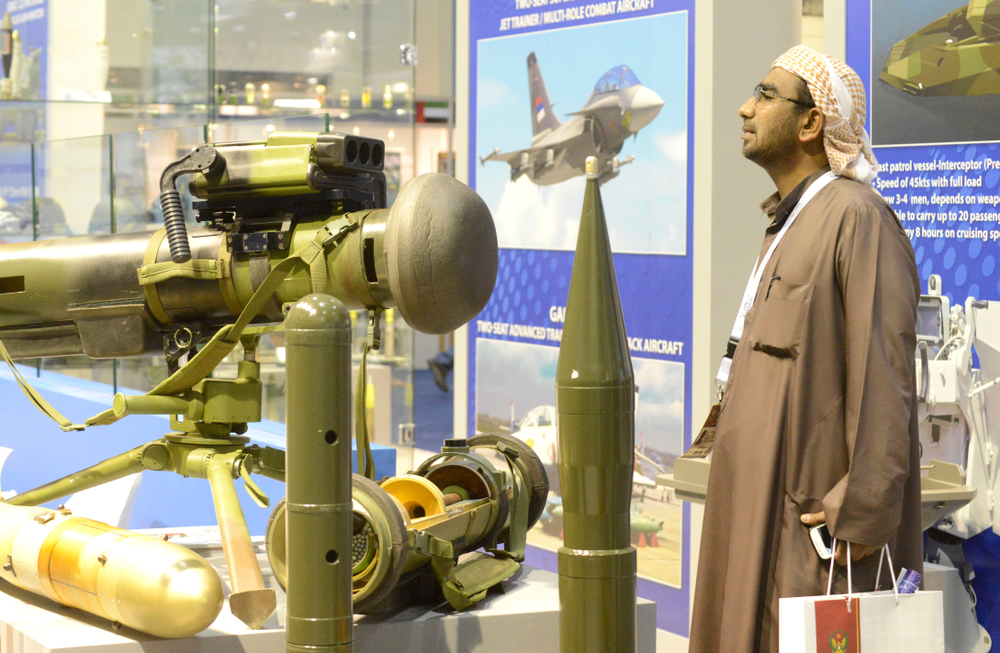
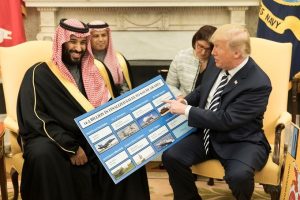
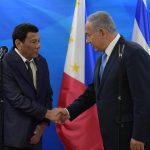
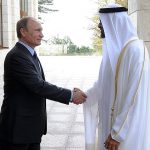
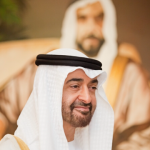
.”Academic research is not espionage”
Academic Research “on countries west want to topple” is not espionage really? Good to know, who thought you that.
Was your mentor Brian Hook with inherited love for piracy at high sea, which he thinks bribing a a merchant ship captain for his cargo is not pricy .
How about love for desert cats like asiatic Chita. Like posing as academics in love to save the cats wandering in Iranian deserts trying to locate Iranian missile sites and placing cameras on military roads to monitor cats. Western spy agencies have become amateurish or they think their counterparts are still falling for their bs.
Shedding light on the taboos of religions has been always a unforgivable sin. Clergymen of the war religion would defend their God of money for sure!
Researching for the MIC in other countries and being rewarded monetary personally or directly to the universities must stop! If the naive and uninformed researching students are being taken advantage of by the research directors or by the MIC directly deserve the consequences and should be prosecuted for espionage!
First of all, an author declaring himself (or herself) as research staff at university level is a good thing. We’re more motivated to read an article as this one. Only, we’re not naive and know very well that research into military topics, particularly in foreign countries is absolutely related to gathering ‘intelligence’. What about if this author or his (her) friend Matt discover that among the ‘private investments’ in the UAE are Chinese firms? Ah!… that’s university matter, right? Not, it’s clear for anybody that university knowledge about military parts furnishers and its financial’s sources is part of the intelligence process, whether or not it’s directed by MI6 or C.I.A. and ultimately will be favoured by governments. And at this respect the 5 Ears (and Eyes) are extremely active and full of ‘research’ finances. Remember the Panama Papers, it’s like the way the military complex financial institutions function under the cover of infinitude of ‘private sources’.
Anyway, the article was interesting to read, and to think about. The Middle East, well, that part of the Middle East which interest the Marshall and the Hedges is rich and potentially being tempted to become more independent from the ‘West’. And this is of course source of interest by the 5 Ears and will never lack financial’s resources. Call it spying or not is irrelevant. Knowledge and knowledge about knowledge in military matters has its own network, call it the way you want.
@ Marshall:
‘Academic research’ has always been used by official intelligence services and the military. Some PhD foreign students are granted scholarship to carry out post PhD research on certain issues related to their native countries, just as they ‘use’ some foreign researchers by inviting them to present papers at prestigious conferences in Europe and the US. And since there is no protection for the researched material, inevitably it can be used by the military and intelligence services.
The UAE is a closed society, a big market trying to emulate the West; composed of highly conservative tribal Emiratis in conflict with one another, suspicious, insecure and superstitious, with lazy bureaucracy and poor management and dysfunctional authorities where officials often do not know the law since the Bedouin Rulers are the law makers and can change it anytime at whim! In this ‘island of tolerance and cosmopolitanism’, some painkillers like Co-Codamol might land you in prison or for overstaying your visa for one night – different from your western ‘cosmopolitan’ metropolis. They too have their ‘draconian corporal punishment’, and what you call ‘modernity’ has no effect on their tribal mentality – yes, streets are dominated by lights and high skyscrapers, banks, businesses centres and luxury cars, and the malls full of western designers’ goods to satisfy the newly rich Emiratis’ conspicuous consumption culture that would attract your attention; contrary to the Emiratis’ ruthless treatments of their poor foreign maids/servants who are terrorised by the Emirati police as are 24/7 by their abusive Emirati ‘Sir’ and Emirati ‘madam’ at home! Calls to prayer echo from the mosques while frequently encountering countless foreign sex workers in the streets in every city some even aggressively pushing you to do business. At Dubai bookstores you would find outdated western publications, low level science and business management books, including shelves after shelves loaded with silly romantic or detective or crime novels in English also in abundance everywhere the western trash called the ‘best sellers’, as well as bookshop after bookshop loaded with copies of the Quran and Arabic commentaries on the Quran. This is the market of these Bedouin Masters with a massive foreign workforce, in grip of cultural poverty, despotism, irrational bureaucracy, absurd security officers and official denials; they have for decades been emulating their foreign masters, from exploitation of foreign workers to corruption and lobbying to the barbaric treatment of its dissidents and foreigners in its prisons to the mass murder of the innocents in Yemen – no wonder the UAE was George Bush’s favourite place in the Middle East.
The fact that Western intelligence services make the best use of foreign students’ research materials that are about their respective countries (the ME or elsewhere) is nothing new. But, an academic to go to the UAE – without first studying that slave owning Bedouin culture and its vicious prejudices where even discussing air pollution is seen as breaching the national security, let alone discussing their military, human rights abuses or criminal foreign policies – well, that is an unforgivable ignorance!
Years ago when I heard George Bush describing the UAE as the ideal country in the Middle East, I recalled my Emirati journalist friend who had lost his job at the most influential Emirati newspaper – simply for defending his article on ‘air pollution’ in Dubai! The article regarded as ‘highly political’ was not allowed to be circulated.
The UAE has been copying the Zionists, just as the Zionists copied their own Western Masters. When servants attempt to emulate their masters with impunity the outcome is often comical, cruel and criminal, ruthlessly immoral and inevitably absurd – especially when the servants happen to be the poorly educated nou-veau riche!